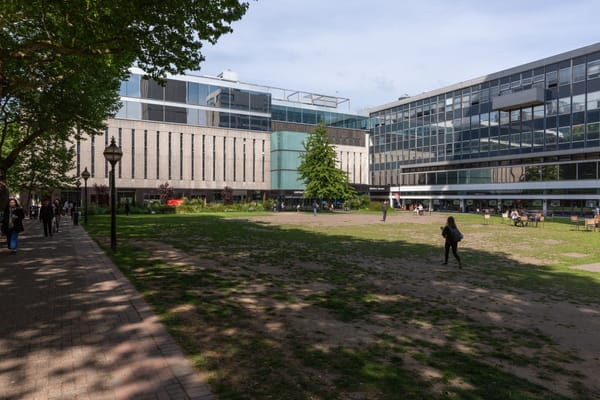Food in Union Stops Due to Electrical Fault; “No Timeline” on Return
The Union kitchens have been closed for two weeks, with no known timeline for when food service will return

The Union has not been providing food service in 568, its flagship venue on the South Kensington campus, for two weeks. The cause of the disruption is an “electrical fault” – specifically, that the circuit board to which the various kitchen appliances are attached to was being overloaded.
As a result, there are health and safety concerns around continuing to use the kitchen appliances. In a concurrent but reportedly unrelated electrical fault in the kitchens behind the Union Dining Hall, a member of staff received a minor electric shock.
The issue has arisen concurrently with the promotion of the health and safety committee within the Union’s structure, and recent considerations of employing a member of staff whose sole remit is health and safety (discussed in this week’s A Conversation With section of Felix.)
There is currently no timeline on when food service may return to 568, though there may be food by the end of this week according to Fifi Henry, the Union’s Deputy President (Finance and Services). Rough estimates from various members of Union staff place the expected wait at several weeks, potentially through to the beginning of second term in January. A replacement “pizza vendor” service will come into place next week in Beit Quad as an interim measure.
Regarding the long expected wait for return of service, Julia Mattingley, the Union’s Head of Commercial Services, said “We don't just want to put a sticking plaster on an axe wound - we need to sort out the fundamental problems, not just symptoms but causes, so that we aren't just back in the same place in a few months’ time.”
Specifically with regards to the kitchen on the ground floor – which services 568 – the Union President, Abhijay Sood, explained: “my understanding is that people have been violating normal health and safety procedures – there are members of staff in the bars who have been continuously resetting tripped circuit breakers in order to keep appliances operational.”
Key to note is that these issues are not new – they have existed for some time, though this is the first time the Union is becoming aware of them, so it is impossible to say how long they have existed for. Typically, electrical problems such as these would fall under the remit of one of College’s divisions, Estates. However, Union bar and kitchen staff were not successfully reporting the problem to Estates while they were ongoing, and were implementing temporary fixes themselves in an effort to keep the kitchen running.
“There has not been a strong culture of adherence to proper protocol,” Abhijay said.
This has not deterred an ongoing working relationship, however. College’s Campus Services division has been providing support to the Union, delivering a food service for external clients the Union has booked in. “The Head of Campus Services, Jane Neary, has been especially helpful, as well as Nick Roalfe and Surrinder Johal, the Directors of Facilities and Property Management, and Safety respectively. We want to form closer relationships, and look at how the College and Union can work better together,” said Julia.
Additionally, the College is aiding in conducting electrical testing of the circuit boards as well as PAT tests on all the light and heavy equipment in the kitchens, as well as liaising with the Union about bringing Union spaces into alignment with College standards.
This is not the first notice of procedural issues in the 568 kitchens, or of health and safety issues in the Union. Prior to the start of term, the kitchens were subject to a standard inspection by an Environmental Health Officer, who raised concerns with certain processes not being followed correctly. However, Abhijay raised assurances that the problems flagged during the inspection could now be dealt with, specifying that some of the issues arose due to staffing vacancies – especially in the Head Chef position – and throughout the Commercial Services directorate but that those vacancies have now been filled.
Concerns have also been expressed about how this will affect bar staff, as well as the Union’s financial status. Fifi clarified with regards to the former that staff will not miss out on shifts; they will instead be reshuffled in order to fill in shifts that would previously be covered by agency staff.
The financial impact is, as of yet, unknown. Food sales’ importance is now prioritised for the bars, and for the Union as a source of income, due to declining drink sales in recent years and the launch of the new menu at the start of the year, and so the expected impact may be large. However, with the close of food service also comes a reduction in costs – in costs for agency staff, for produce, and so on. The Union typically runs a full financial assessment at the start of each academic year, but revisits it in January – the ramifications financially of the loss of food sales will only become apparent at that time.







